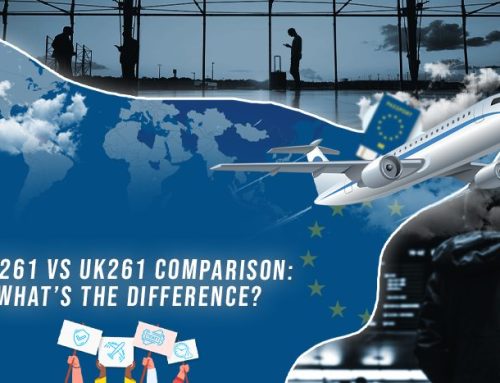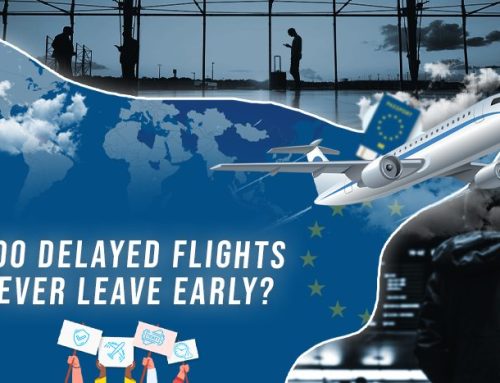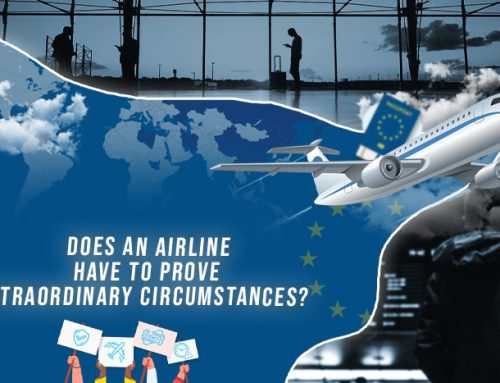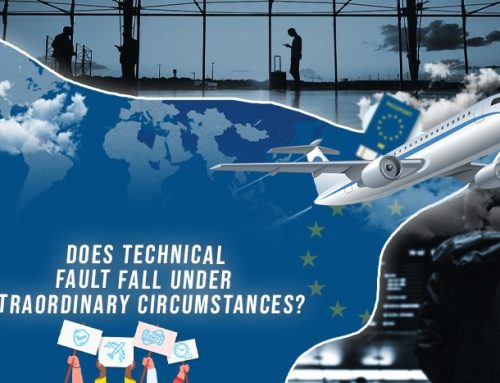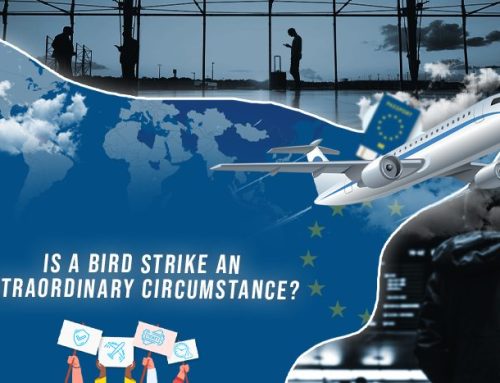EC 261 holds airlines accountable if their passengers face avoidable delays and cancellations. However, the keyword is avoidable. If it’s outside of the airline’s control, this qualifies as extraordinary circumstances. There are different scenarios this term can apply to. Is a strike considered one? What exactly is an extraordinary circumstance while flying? The answers to these questions and more are below.
Key Takeaways
- Passengers should be aware that EC 261 holds airlines accountable for avoidable delays and cancellations but considers circumstances outside the airline’s control as extraordinary. This distinction is crucial when seeking compensation.
- Strikes can affect flights, but whether they are covered under EC 261 depends on their origin. Airline strikes, where the airline’s actions contributed, are eligible for compensation, while airport strikes, beyond the airline’s control, are not covered.
- If you experience a strike-related delay covered by EC 261, you must file a claim with the airline. Be prepared to provide proof of the delay and the airline’s fault. Compensation amounts vary based on flight distance, with a maximum of £540 per passenger.
Is a Strike Considered Extraordinary Circumstances?
Strikes are complicated when it comes to EC 261. The type of strike will determine if it is covered under EC 261. If it is an airline strike, then it is covered under EC 261. If it is an airport strike, it is not covered under 261.
It may sound silly to make that distinction, but EC 261 is intended to hold the airlines accountable for their actions that can cause ripple effects across travel for days. If the strike is from their own employees, this is something they can control. They could have negotiated more or been more flexible to come to an agreement.
Strikes are often the final straw, so discussions had to break down before you got there. This is why it is covered under EC 261. They are airline employees, and the airline’s actions – whether intentional or unintentional caused it.
On the other hand, if the strike is at the airport, that is not the airline’s fault. They could not have impacted the outcome or the circumstances leading up to the strike. Therefore, it is not covered under EC 261.
You can still try to file a claim, but it will likely be declined.
How Do I Get Compensated For a Strike?
If the strike is covered under EC 261, you’ll need to file a claim with your airline. Simply navigate to their customer service page or call their customer service line and discuss your options with a representative.
You will need to provide your booking information and other identifying information. Additionally, you will need to provide proof that the delay occurred and the airline was at fault. The onus is on you to prove this. The airline, while obligated to pay out under EC 261, may try to skirt the issue to avoid losing money, so make sure that you are detailed in your claim.
Once you submit it, you will often have to wait between two weeks to three months for resolution, depending on the airline. While the airline may try to give you credits or vouchers, you are entitled to cash compensation if that is what you prefer.
How Much Am I Entitled To?

The amount of compensation varies from flight to flight. The maximum you could receive is £540 per passenger, so it’s important that you file with the airline to get your compensation. Depending on the length and destination, you could receive the following.
- Flights 932 miles or less: £230
- Flights more than 932 within the EU: £360
- Flights between 932 and 2175 miles not within the EU: £360
- Flights more than 2175 miles: £540
Keep in mind that you must file a claim with the airline. They do not automatically pay out and often will try to avoid compensating passengers. If you face an issue with getting the compensation you deserve, you can always partner with a flight compensation company.
Conclusion
If strikes are covered under EC 261 depends on the type of strike. Airline strikes are covered, while airport strikes are not. This is an important distinction that will make or break if you are eligible to receive up to £540, so it’s important to understand your rights when an issue happens.
Frequently Asked Questions
-
What is EC 261, and how does it relate to flight delays and cancellations?
EC 261 is a regulation that holds airlines accountable for avoidable flight delays and cancellations. It allows passengers to claim compensation for certain disruptions.
-
What qualifies as an extraordinary circumstance under EC 261?
Extraordinary circumstances are events outside the airline’s control, such as extreme weather, natural disasters, or air traffic control strikes.
-
Are strikes considered extraordinary circumstances under EC 261?
The type of strike matters. Airline strikes, where the airline’s actions contribute to the disruption, are covered. Airport strikes, beyond the airline’s control, are not covered.
-
How can I file a claim for compensation if my flight is affected by a strike?
To file a claim, contact your airline through their customer service page or call their customer service line. Provide booking information, proof of delay, and evidence of airline fault.
-
How long does it take to receive compensation after filing a claim?
The resolution time can vary from two weeks to three months, depending on the airline and the complexity of the case.
-
Can I choose between cash compensation and vouchers or credits?
Yes, you have the right to choose cash compensation if that’s your preference, even if the airline initially offers vouchers or credits.
-
What factors determine the amount of compensation I am entitled to for a strike-related delay?
Compensation amounts are based on the distance of the flight. It can range from £230 for short-haul flights to £540 for long-haul flights.
-
What if the airline declines my claim for strike-related compensation?
If your claim is denied and you believe you are entitled to compensation, you can consider seeking assistance from a flight compensation company or pursuing legal action.
-
Is it essential to understand my rights under EC 261 before traveling?
Yes, it’s crucial to know your rights as a passenger under EC 261 to ensure you can navigate the compensation process effectively if you encounter flight disruptions.
-
Are there any exceptions to the rules outlined in EC 261 regarding strikes?
While the rules generally apply, there can be nuances and exceptions. It’s advisable to consult with the airline or legal experts if you have specific questions about your situation.



